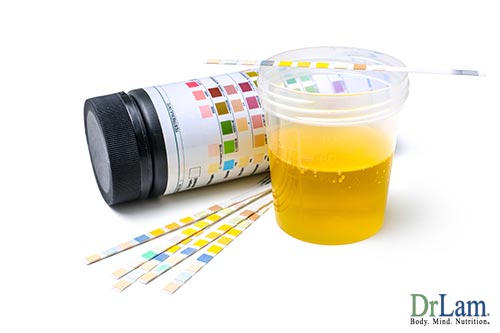
Do you have aches and pains, bloating, gas, cramps, and food sensitivities? Have you had tests done but each come out showing nothing is wrong? Do not despair and don’t start to think you are losing your mind. You might have a little-known of condition known as leaky gut.
 Your question may be – so, exactly what is leaky gut?
Your question may be – so, exactly what is leaky gut?
Leaky gut syndrome, also referred to as leaky gut, is the result of certain medications, lifestyle behaviors, or conditions that cause increased permeability of the gut lining.
When healthy, the gut lining is responsible for the absorption of nutrients while preventing large molecules and germs passing through from the bowel into your bloodstream. The gut lining is one cell layer thick and is responsible for this. Cells are tightly lined next to each other, making the lining impermeable to toxins. The space between one cell and the next is called the tight junction. When this space widens, toxins are able to pass between the cells and trigger inflammation as they enter the hepatic circulation on route to the rest of the boyd. Leaky gut therefore can be very serious.
There are a number of varied standpoints as to just what causes a leaky gut. Although the complete verdict is still not out, most medical practitioners are in agreement on certain aspects, their causes, and the treatment of leaky gut.
Certain drugs and alcohol are known to irritate the bowel lining and possibly causing damage to the seals between your cells, thereby allowing substances to pass into your bloodstream. The result is inflammation in that area of the bowel. In most instances, the condition improves once you stop ingesting the cause of the problem. The worst case scenario in most instances is the development of ulcers.
There are, however, a number of illnesses and treatments that add to a disruption in the proper functioning of the bowel lining. These include infections such as giardiasis and salmonella, certain inflammatory bowel diseases such as Crohn’s disease, certain chemotherapy medications, radiotherapy to the abdominal area, cystic fibrosis, diabetes type-1, chronic kidney problems, complicated surgeries, and sepsis.
Homeopaths and other alternative healthcare practitioners who tend to look at the body from a more holistic viewpoint link leaky gut to a wider number of existing health-related problems. Amongst these are chronic fatigue syndrome, adrenal fatigue, multiple sclerosis (MS), food allergies, eczema and other skin conditions, lupus, asthma, migraine, and even autism.
There are quite a number of general symptoms most often associated with the condition. They include:
The gut is connected to the brain by means of nerves. The part of the brain influencing gut activity is the hypothalamus, which is also part of the hypothalamic-pituitary-adrenal (HPA) axis. Besides keeping the body in a state of homeostasis, the hypothalamus also either starts, or stops, the production of various hormones throughout the body. As far as the stomach and intestines are concerned, it plays a role with regards to glandular secretions, body weight, appetite, and fluid and electrolyte balance.
However, leaky gut interrupts effective communication between the brain, stomach, and intestines, producing a range of symptoms that are specifically brain-related. These include anxiety, depression, mood swings, and brain fog.
 When your immune cells come into contact with infected cells, they at times become ‘killer cells’ due to working overtime and becoming stressed, accidentally attacking healthy cells and causing autoimmune disorders. These include Crohn’s, diabetes, lupus, Hashimoto's, and celiac disease.
When your immune cells come into contact with infected cells, they at times become ‘killer cells’ due to working overtime and becoming stressed, accidentally attacking healthy cells and causing autoimmune disorders. These include Crohn’s, diabetes, lupus, Hashimoto's, and celiac disease.
Studies have shown that there is also a correlation between leaky gut and neurological problems, such as Alzheimer’s, autism, migraines, fibromyalgia, neuropathy, and multiple sclerosis (MS).
We are constantly affected by different types of stress, whether of a physical, psychological, or environmental nature. When exposed to any stressful situation, our body, via the adrenal glands, release stress hormones such as cortisol and adrenalin that are directly responsible for putting our bodies into a state of heightened awareness on the one hand, while it prepares us to flee or fight if necessary on the other. These stress hormones are thus our body’s protectors when we are in a heightened state of awareness and readiness to take action, and they directly increase our heart rate and breathing while storing energy in our muscles.
During this stressful period, the brain indicates that processes (including hormone production) considered non-essential to the immediate preservation of your life either cease or diminish in their function, as all systems are concentrating on short-term survival. The bacteria that is present in our digestive systems actually detect the stress hormones in our bodies. Under normal conditions, when the stressful situation is of short duration, all systems start functioning properly once more.
If, for whatever reason, the stressful situation continues for an indefinite period, problems start to arise. Your cortisol levels rise, which, if left unchecked, cause the adrenal glands to work overtime. The adrenal glands, at some stage, are not able to keep up the body’s demand for cortisol, and the body’s natural stress response calls on other parts of the body to help with the constant need for this hormone. The consequences are far-reaching, impacting your stomach and intestinal tract as well.
 Microbes in the gut that are harmless become pathogenic in response to the constant release of stress hormones, often mutating in the process, resulting in infections. Your gut’s ecology is no longer in a state of homeostasis or balance. The result is that the digestive and immune systems are compromised and we are more vulnerable than usual to infection. We are then presented with a wide range of health conditions that often seem totally unrelated.
Microbes in the gut that are harmless become pathogenic in response to the constant release of stress hormones, often mutating in the process, resulting in infections. Your gut’s ecology is no longer in a state of homeostasis or balance. The result is that the digestive and immune systems are compromised and we are more vulnerable than usual to infection. We are then presented with a wide range of health conditions that often seem totally unrelated.
Unfortunately, functional medicine often seeks to treat the different symptoms suffered and does not seek out the root cause of the problem which, more often than not, is a condition known as adrenal fatigue. Very few practitioners of conventional medicine, however, recognize adrenal fatigue as a health condition, although most homeopaths and alternative healthcare practitioners realize that it is the root cause of a number of health conditions.
Although leaky gut is usually diagnosed due to the symptoms present, there are two tests that are reliable in diagnosing the condition.


Leaky gut is a lifestyle orientated disease and is caused by chronic stress, inflammation, medication, yeast, a deficiency in certain minerals, and the modern diet. The solution to the problem would thus be found in changing certain lifestyle habits and practices. The condition itself did not present overnight but was a long time in the making. Recovery will also be a long term process.
Those with leaky gut syndrome should take a two-pronged approach to their diet, i.e. one of elimination and inclusion.
Any foods that could cause irritation or contribute towards the growth of yeast should be eliminated. These foods include grains, starches, and sugars.
Eat plenty of whole, fresh foods full of vitamins, minerals, and enzymes as these help with the healing process. Good sources are vegetables, proteins, and whole-food fats as they help to strengthen cellular membranes. High-fiber foods help get rid of any toxic waste.
Good sources of foods rich in fiber include vegetables, legumes, nuts, and berries. Omega-3 fatty acids help calm down inflammation while it helps with cellular health. Fish, avocado, and nuts are good sources.
Probiotics help cultivate a favorable intestinal microbiome in the intestine. Lactobacillus, a gut-friendly bacteria helps balance the intestine’s flora, fights yeast infections, helps the gut lining to heal, and aids with nutrient absorption. Excellent sources of natural probiotics include fermented foods such as sauerkraut, pickles, kefir, tempeh, yogurt, and kombucha.
Fermented foods help lower inflammation while playing a role in controlling your blood sugar levels and increasing antioxidants. Unfortunately, they may not be well tolerated by those with adrenal fatigue
Stress, whether from work or your personal life, is one of the main culprits when it comes to the development of a leaky gut. By addressing your stressors, you help your adrenal glands heal as well as your intestines in the case of leaky gut syndrome as your cortisol and other hormone levels as well as bodily functions stabilize.
Exercise is a great natural way to relieve stress and does not imply going to the gym. Gentle exercise is rather recommended. Other ways of reducing stress include:
Enzymes help break down sugars, protein, and starches, making for easier digestion. Larger pieces of undigested molecules irritate your intestinal lining. An enzyme supplement should ideally contain lipase, lactase, protease, and amylase, as they help with the breaking down of fats, dairy, protein, and starches respectively.
 Licorice root helps stabilize hormone levels by suppressing cortisol production. Licorice root should not be taken by those in the advanced stages of adrenal fatigue where cortisol levels are probably low. Licorice root is also linked to edema and hypertension, so should not be used by those with either of these conditions. In addition, the may worse those with advanced adrenal fatigue.
Licorice root helps stabilize hormone levels by suppressing cortisol production. Licorice root should not be taken by those in the advanced stages of adrenal fatigue where cortisol levels are probably low. Licorice root is also linked to edema and hypertension, so should not be used by those with either of these conditions. In addition, the may worse those with advanced adrenal fatigue.
Collagen is one of the major components in broth and, once cooked, becomes gelatin. Whether in powder or capsule form, collagen or gelatin helps boost your gastric function. Excessive collagen can lead to constipation. Those with advanced adrenal fatigue may not tolerate well.
To be taken only for a period of up to fourteen days, Oil of Oregano helps balance your intestinal flora. Oregano can, however, cause an upset stomach and should not be used by those allergic to any herbs in the Lamiaceae family, which includes mint, sage, basil, and lavender.
Coconut oil contains caprylic acid that supports intestinal activity. It also has antifungal and antiviral properties.
Marshmallow root helps ease inflammation of the stomach lining, helps to heal ulcers, and creates a protective lining on your digestive tract’s lining, helping with both instances of constipation and diarrhea.
There is a definite link between adrenal fatigue and leaky gut syndrome. The two are not necessarily exclusive of each other. Both have very similar symptoms, indicating that leaky gut, to a very large extent, is due to overworked adrenal glands and the resultant adrenal fatigue.
When you look at the body from a holistic point of view and seek to treat the root cause of the problem, treating your adrenal fatigue problem, you in effect address the cause and symptoms of your leaky gut as well.
The problem, however, and what needs keeping in mind, is that there is no fast, quick-fix solution when it comes to the condition. Both adrenal fatigue and leaky gut syndrome are conditions that develop over a long period. The treatment, which is mostly lifestyle orientated in nature, will thus take a long time before it proves effective. Patience and perseverance are the key ingredients in making a full recovery.